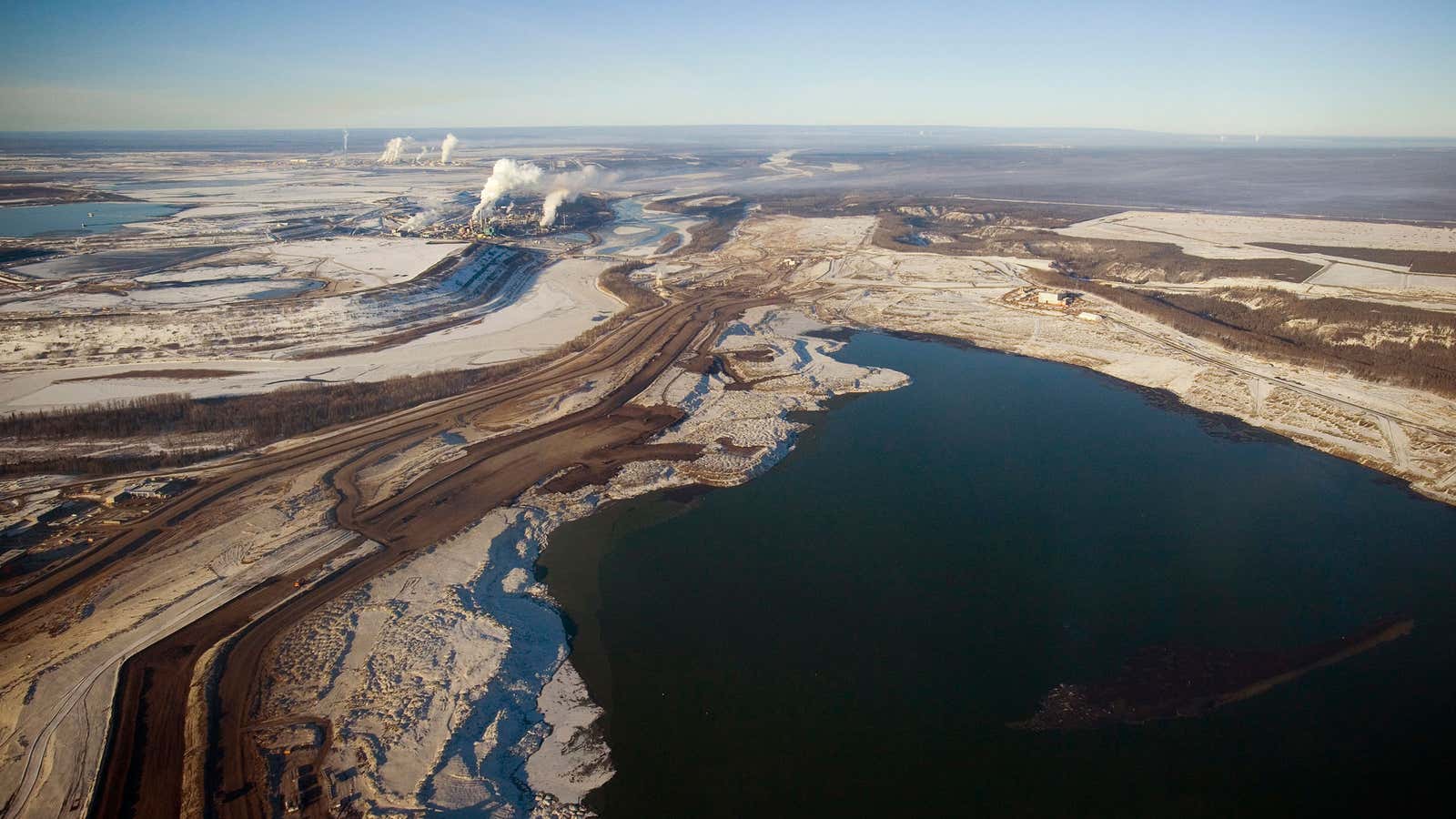Chinese investors fear they may start to get a chilly reception in Canada, the Wall Street Journal reported (paywall). These fears are reportedly based on Canada rejecting a $5.21 billion bid for natural gas producer Progress Energy Resources from Malaysian energy giant Petronas.
Canada’s government said Petronas’ purchase of Progress would not be of “net benefit” to the country, without providing further explanation. Many media outlets have theorized this is terrible news for Cnooc, a Chinese government-backed oil major that bid successfully for Canada’s Nexen but is awaiting approval of the $15 billion deal after the Canadian government delayed its decision. But while both China and Malaysia happen to be in the same continent, the connection ends there.
Here are the reasons why the Petronas decision—which the Malaysian company has 30 days from last Friday to appeal—probably does not mean Canada has closed the door on China.
Petronas is owned by the Malaysian government, and Cnooc is backed by the Chinese state. But these nations have very little in common. Malaysia is a capitalist, Islamic country with a much-maligned but nonetheless functioning democracy. Canadians have wide ranging concerns about Chinese companies buying into their country and accessing state secrets and intellectual property. They have much less to fear from Malaysia, which has a more developed business culture and a reputation for treating foreign trading partners well. British vacuum cleaner enterpreneur James Dyson, who has complained heartily about Chinese manufacturers stealing his company secrets, prefers (pdf) to make his goods in Malaysia. In the World Bank’s latest Ease of Doing Business survey, Malaysia ranked 18th out of 183 countries while China was 91st.
Ottawa is publicly fretting about headline-grabbing Chinese deals, as it continues to drum up Chinese energy investment.
Superficially, it seems Canada is about to remove the red carpet it has kept rolled out for China for much of the last decade. Canadian Prime Minister Stephen Harper has expressed concerns the Nexen deal will not be good for his country. By blocking it, he would gain capital with the almost four-fifths of Canadians who oppose more Chinese investment in the resources sector and are against Cnooc buying Nexen. But behind the headlines, Harper is welcoming more Chinese cash. In February, he visited Beijing to ink a deal—it was finalized in September—to open up Canada’s energy sector further to China. That does not seem like the actions of a protectionist government.
Canada’s Prime Minister is offering China energy resources as leverage for Canadian companies.
Harper is getting more enthuasistic about China, not the reverse, says the Asia Pacific Foundation, a Canadian think tank. That is because the Prime Minister believes that offering China energy resources will create better access for Canadian businesses in China. That is particularly the case for Canadian banks, but also applies to manufacturers. So the posturing over Nexen could be Harper’s way of reminding China to open its doors to Canadian companies.Bank of Nova Scotia last September announced plans to buy a stake in China’s Bank of Guangzhou. The deal has not yet been approved in China. And the Chinese authorities’ view of it could hinge on the fate of Cnooc’s Nexen bid.
Canada needs China to counter its major dependence on the US. Nexen could be a small price to pay for that. As this column in Petroleum Economist argues sensibly, Canada’s relationship with China is far more complex than a case of “nationalist politics on either side of the Pacific Rim.” Canada needs a strong alliance with China to counterbalance its reliance on America as its No. 1 oil customer. Despite the hype about China gobbling up Canadian resources, America “buys about 99% of Canada’s oil and gas exports,” Petroleum Economist says. Playing America off against China is one of Ottawa’s only options to strengthen its hand. TransCanada, a Canadian company, is attempting to build a 1660 mile tar oil sands pipeline from Alberta to Texas, in the face of much opposition from environmental activists – and even actress Daryl Hannah. As Petroleum Economist writes, Canada thinks it could do with more support from US administrators on the Keystone XL project. Ottowa needs good relations with China to “send the message to Americans that if they don’t buy oil sands crude, China surely will.” And Nexen, the column continues: “is a small price to pay,” particularly because “most of Nexen’s operations lie outside Canada.”
And China is not really gobbling up Canada’s energy sector anyway. According to figures supplied by Ernst & Young, Chinese investment into Canada’s energy sector totaled $14 billion from January 2005 to June 2012. That would double if the Nexen purchase was waived through. But even at the $30 billion mark, China’s purchases in Canada’s oil and gas sector over the last six and a half years would be around the same as the market capitalisation of TransCanada (circa $31 billion at the time of writing) and smaller than the value, on the New York exchange, of Suncor Energy ($52 billion). So Canadians do not have too much to fear in terms of energy security. At least, not yet.
